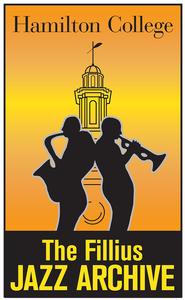
To celebrate Jazz Appreciation Month (JAM), each day in April Hamilton’s Fillius Jazz Archive has featured an artist on the news site along with that individual’s archived audio interview. Since 2012, April 30 has been designated International Jazz Day by the United Nations Educational, Scientific and Cultural Organization (UNESCO). To wrap up JAM, and in celebration of International Jazz Day, four artists are featured today: Eiji Kitamura, Toshiko Akiyoshi, Annie Ross and Keith Ingham.
Eiji Kitamura
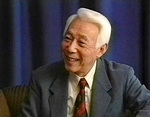 Clarinetist Eiji Kitamura was born in Tokyo on April 8, 1929. He began playing professionally in the 1950s and was leading his own groups during the 1960s.
Clarinetist Eiji Kitamura was born in Tokyo on April 8, 1929. He began playing professionally in the 1950s and was leading his own groups during the 1960s.
Kitamura has recorded frequently with some of the greatest pianists in jazz, including Hank Jones, Teddy Wilson and John Lewis. He has also played alongside fellow clarinetists Woody Herman and Benny Goodman. He appeared at the 1978 Monterey Jazz Festival and has been a frequent guest with Bill Berry at West Coast festivals since then.
Kitamura was interviewed by Monk Rowe, the Joe Williams Director of the Jazz Archive, in Los Angeles on Feb. 13, 2009.
To listen to the audio recording of the interview, click here and choose “audio” in the column on the right.
Toshiko Akiyoshi
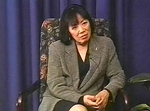 Pianist, composer and band leader Toshiko Akiyoshi was born in Dairen, China, on December 12, 1929. Her family resettled in Japan in 1947 where she absorbed the sounds of jazz popular with American servicemen.
Pianist, composer and band leader Toshiko Akiyoshi was born in Dairen, China, on December 12, 1929. Her family resettled in Japan in 1947 where she absorbed the sounds of jazz popular with American servicemen.
Akiyoshi found steady work in clubs and theaters and later pursued a career in jazz in the United States. After studying at Berklee College of Music, she performed and recorded with Charlie Mariano and Charles Mingus, establishing herself as a highly regarded bop pianist.
In 1973, with her husband Lew Tabackin, Akiyoshi founded a Los Angeles rehearsal band that eventually established itself as one of the most innovative large jazz ensembles in modern jazz.
Her unique composing voice often combines elements of Japanese culture, and in 1984 she was the subject of a documentary, Jazz is My Native Language. Toshiko now directs her orchestra in New York while performing and recording with small ensembles.
Monk Rowe interviewed Akiyoshi on Jan. 17, 1999, in New York City.
To listen to the audio recording of the interview, click here and choose “audio” in the column on the right.
Annie Ross
V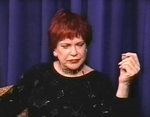 ocalist Annie Ross was born in London in 1930. She has had an active and successful career in Europe and America and has shared the stage with some of the greatest artists in jazz.
ocalist Annie Ross was born in London in 1930. She has had an active and successful career in Europe and America and has shared the stage with some of the greatest artists in jazz.
With Lambert, Hendricks & Ross, she helped bring vocal jazz to new heights and set the standard for all vocal groups to come. She continues to perform as a soloist, and on occasion with her old bandmate Jon Hendricks.
Ross was interviewed by Monk Rowe on Jan. 13, 2001, in New York City.
To listen to the audio recording of the interview, click here and choose “audio” in the column on the right.
Keith Ingham
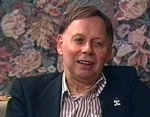 Pianist Keith Ingham has come a long way since the days he had to sneak jazz recordings into his London home. Born in 1942, he displayed a talent for foreign languages, excelling in French, Italian and Chinese. He augmented his classical piano studies with constant listening to jazz recordings from the United States, eventually teaching himself to play jazz piano.
Pianist Keith Ingham has come a long way since the days he had to sneak jazz recordings into his London home. Born in 1942, he displayed a talent for foreign languages, excelling in French, Italian and Chinese. He augmented his classical piano studies with constant listening to jazz recordings from the United States, eventually teaching himself to play jazz piano.
Ingham accompanied visiting and emigrating American jazz artists, including Benny Carter and Ben Webster, and recorded his first album as a leader with Bud Freeman in 1976.
He moved to the U.S. in 1978 and freelanced with Benny Goodman and the World’s Greatest Jazz Band, and accompanied and arranged for Peggy Lee and Maxine Sullivan.
Ingham has created memorable albums devoted to the music of Fred Astaire, Billy Strayhorn, Fats Waller and Victor Young. He is a passionate spokesman for American jazz and its leading artists.
Ingham was interviewed by Monk Rowe on Sept. 12, 1997, in Chautauqua, N.Y.
To listen to the audio recording of the interview, click here and choose “audio” in the column on the right.
